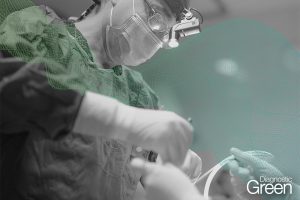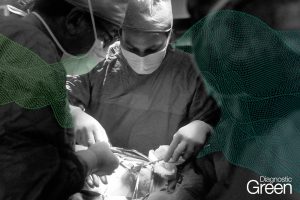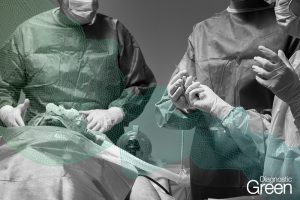Surgery remains the only curative treatment for rectal cancer, despite the progress in oncological therapies. The widespread use of robotic surgery drastically changed the approach to rectal cancer, reducing the burden of the procedure on the patient’s quality of life and allowing a faster recovery. Indocyanine green fluorescence has shown promising results in reducing severe surgical complications, such as anastomotic leak, that can delay the beginning of further chemo-radio treatments. The purpose of this descriptive review is to analyze the impact of indocyanine green fluorescence when applied in robotic surgery on short-term surgical outcomes for rectal cancer, providing a picture of the current literature on the issue, highlighting the heterogeneity of protocols and focusing on possible future development.
In rectal cancer surgery, anastomotic leakage (AL) remains the most feared complication, with a frequency of up to 30% in non-high-volume centers. The preservation of proper vascularization is a key factor for successful anastomosis. The use of fluorescence with indocyanine green (ICG) as an intraoperative method to verify optimal perfusion is becoming an interesting tool in rectal surgery. Today, robotic surgery, together with the use of the intraoperative evaluation of the perfusion with ICG, could be a real strategy to deal with AL, allowing for a more delicate and less traumatic surgical technique. This strategy may allow for an extremely accurate surgery, and for optimal control of the proper vascularization of the rectum.
Methods: The purpose of this descriptive review is to analyze the impact of fluorescence and robotic surgery on short-term surgical outcomes for rectal cancer.
Results: We performed a systematic literature search using the PubMed, Embase and Cochrane library databases. The primary endpoints were to evaluate the application of ICG fluorescence in robotic rectal surgery and the rate of anastomotic leakage when using these technological implementations. The secondary endpoints were to evaluate the dosage of ICG and the timing of application by different surgeons. Conclusions: ICG fluorescence is an inexpensive and quick method to assess bowel perfusion, providing immediate feedback to the surgeon…




